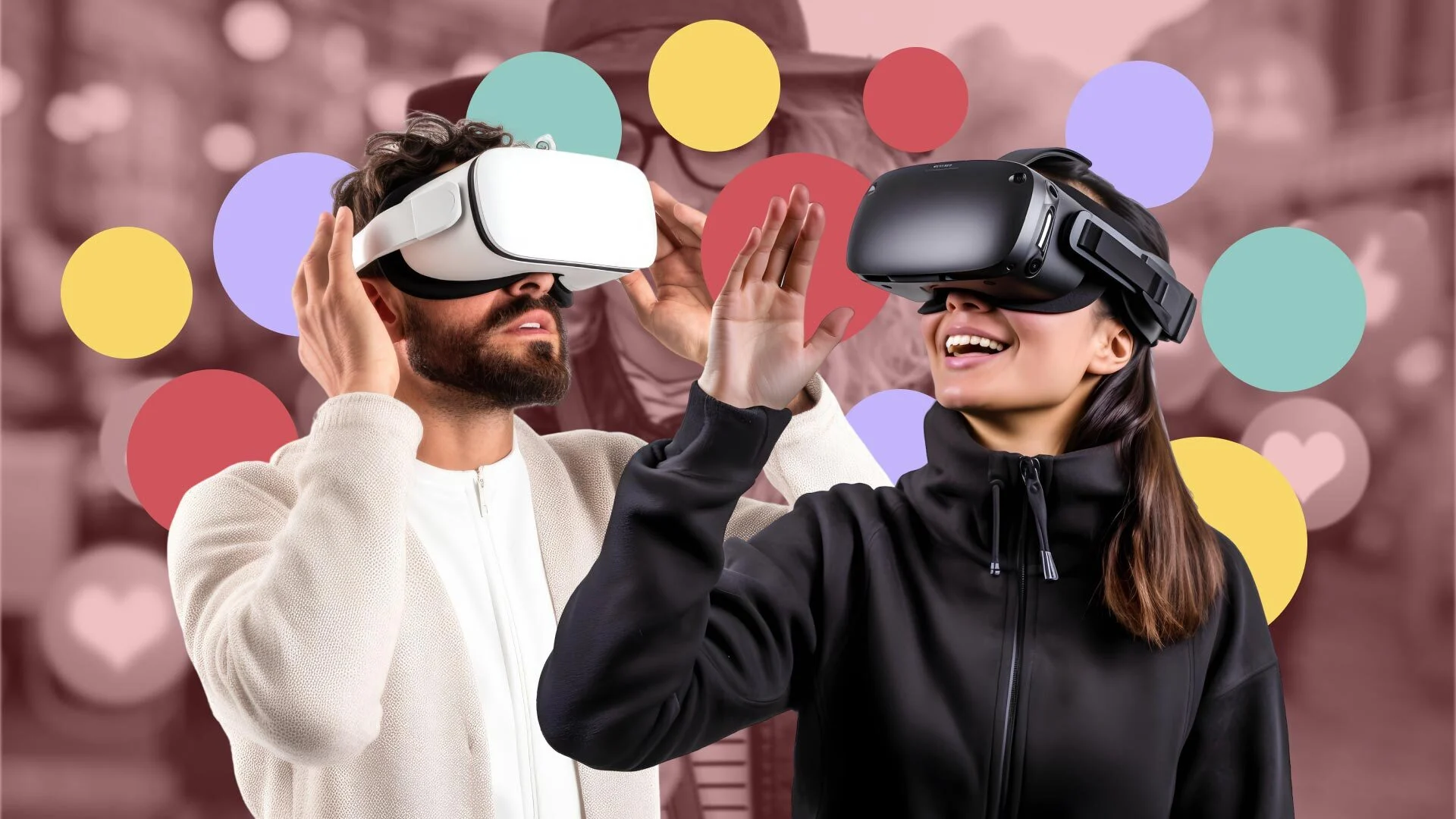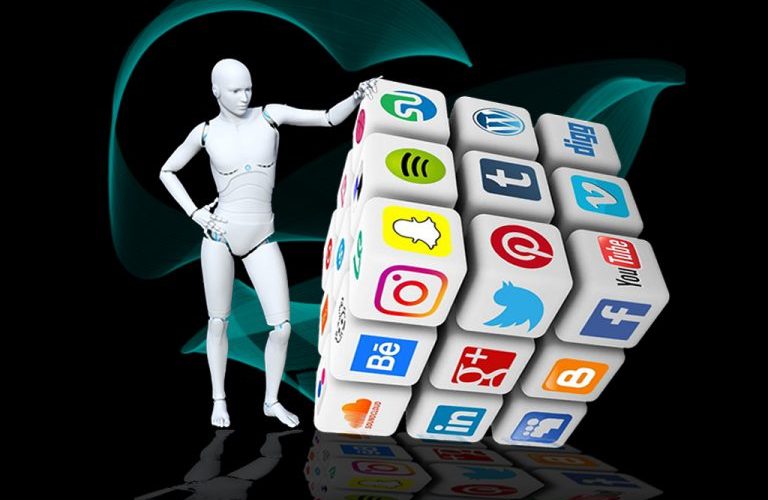In the dynamic landscape of digital communication, social media has emerged as a cornerstone of modern interaction. Platforms such as Facebook, Twitter, Instagram, and TikTok have revolutionized the way people connect, share, and engage with content. As these platforms continue to evolve, the integration of artificial intelligence (AI) is playing an increasingly pivotal role. This article explores how Social Media AI is shaping the future of online interaction, enhancing user experiences, and transforming the way businesses operate.
The Advent of AI in Social Media
Artificial intelligence is no longer a futuristic concept; it is a present reality that is deeply embedded in the fabric of social media platforms. The integration of AI technologies has enabled these platforms to offer more personalized, efficient, and engaging experiences for users. From content curation to customer service, AI is redefining the boundaries of what is possible in the realm of social media.
Personalized Content Curation
One of the most significant impacts of Social Media AI is the ability to curate personalized content for users. Algorithms powered by AI analyze vast amounts of data, including user preferences, behaviors, and interactions, to deliver content that is tailored to individual interests. This not only enhances user engagement but also increases the time users spend on the platform.
For instance, Facebook’s News Feed algorithm uses machine learning to prioritize posts that are likely to be of interest to the user. Similarly, Instagram’s Explore page leverages AI to recommend photos and videos based on the user’s past interactions. This level of personalization is made possible by AI’s ability to process and analyze data at an unprecedented scale and speed.
Enhanced User Engagement
AI-driven features such as chatbots and virtual assistants have significantly improved user engagement on social media platforms. These tools provide instant responses to user queries, offer personalized recommendations, and even facilitate transactions. Chatbots, in particular, have become invaluable for businesses looking to provide round-the-clock customer service.
For example, many companies now use AI-powered chatbots on their social media pages to handle customer inquiries, book appointments, and process orders. This not only improves customer satisfaction but also frees up human resources to focus on more complex tasks.

Advanced Analytics and Insights
Social Media AI is also transforming the way businesses analyze and interpret data. Advanced AI algorithms can sift through massive datasets to uncover patterns, trends, and insights that would be impossible for humans to detect. This enables businesses to make more informed decisions, optimize their social media strategies, and measure the effectiveness of their campaigns.
Tools like sentiment analysis, powered by natural language processing (NLP), allow businesses to gauge public sentiment towards their brand, products, or services. By analyzing user comments, reviews, and mentions, AI can provide a real-time snapshot of how a brand is perceived, enabling businesses to respond proactively to any issues or opportunities.
Content Creation and Moderation
AI is not only curating content but also creating it. Tools like GPT-3, developed by OpenAI, can generate human-like text, making it easier for businesses to produce high-quality content at scale. From writing social media posts to generating product descriptions, AI is becoming an indispensable tool for content creators.
Moreover, Social Media AI is playing a crucial role in content moderation. With the sheer volume of content being uploaded every second, it is impossible for human moderators to keep up. AI algorithms can automatically detect and flag inappropriate content, such as hate speech, violence, or misinformation, ensuring a safer and more positive online environment.
Influencer Marketing and AI
Influencer marketing has become a significant aspect of social media, and AI is making it more effective than ever. AI-powered tools can identify the most relevant influencers for a brand by analyzing their follower demographics, engagement rates, and content style. This ensures that businesses can partner with influencers who are most likely to resonate with their target audience.
Additionally, AI can track the performance of influencer campaigns in real-time, providing insights into metrics such as reach, engagement, and conversion rates. This allows businesses to optimize their campaigns on the fly and achieve better results.
Ethical Considerations and Challenges
While the integration of AI in social media offers numerous benefits, it also raises important ethical considerations and challenges. Issues such as data privacy, algorithmic bias, and the spread of misinformation are significant concerns that need to be addressed.
Data privacy is a major issue, as AI algorithms rely on vast amounts of user data to function effectively. Ensuring that this data is collected, stored, and used responsibly is crucial to maintaining user trust. Additionally, there is the risk of algorithmic bias, where AI systems may inadvertently perpetuate existing biases present in the data they are trained on. This can result in unfair treatment of certain groups or individuals.
The spread of misinformation is another critical challenge. While AI can help detect and flag false information, it can also be used to create deepfakes and other forms of deceptive content. Striking a balance between leveraging AI for positive outcomes and mitigating its potential risks is essential for the future of social media.
The Future of Social Media AI
As AI technology continues to advance, its impact on social media will only grow. Emerging trends such as augmented reality (AR) and virtual reality (VR) are set to further transform the social media landscape. AI will play a crucial role in creating immersive and interactive experiences, blurring the lines between the digital and physical worlds.
Moreover, the development of more sophisticated AI models will enable even greater levels of personalization and engagement. Predictive analytics, powered by AI, will allow businesses to anticipate user needs and preferences, delivering content and experiences that are not only relevant but also anticipatory.
Conclusion
The evolution of social media in the age of AI is a testament to the transformative power of technology. Social Media AI is enhancing user experiences, driving business growth, and shaping the future of online interaction. As we navigate this rapidly changing landscape, it is essential to embrace the opportunities that AI presents while remaining vigilant to the ethical considerations and challenges it brings.
In this age of AI, social media is not just a platform for connection; it is a dynamic ecosystem where technology and human interaction converge. By harnessing the power of AI, we can create a more personalized, engaging, and inclusive digital world.










